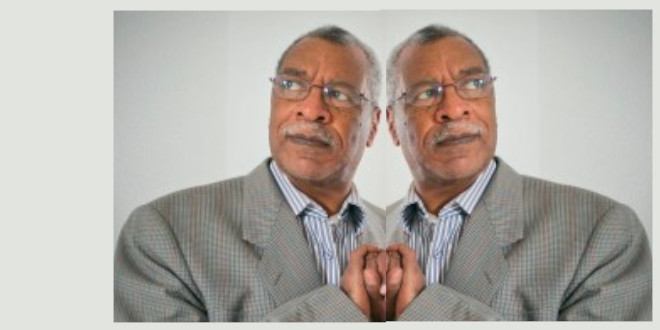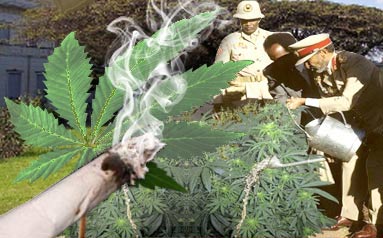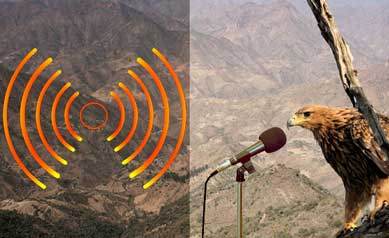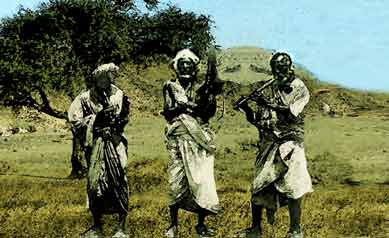Can Mesfin Hagos Lead Under a Banner of “One Country, One Destiny”?

It has become a cliché to say the Internet has changed many facets of our lives, and the claim of such a truism, however, can hardly be called an overstatement. Of general interest for this article rests in the social and political activism that continues to evolve as it creates a seemingly conducive environment for those who may not have had the chance to join in any activism before. At the root, it is all about whose narrative reigns supreme. Such supremacy appears to be measured by how many followers one has, not by the nature of the ideas being espoused. After all, Hitler, too, couldn’t have done his genocide of six million people without followers aiding and abetting and the rest resorting to indifference.
At this junction in the struggle for justice in Eritrea, do we really need to fight whose narrative reigns supreme? How does one even bring the myriad of competing voices that are proliferating over the social media into one political and social tent so they may focus on their common enemy, namely, the regime in Eritrea. Needless to say, such mushrooming of disparate elements has been one fertile ground for the regime in Eritrea to easily exploit, though it needs not do any hard lifting as the social media activists are spending the majority of their time undermining one another.
Hamstringing these de facto opposition voices is next to impossible other than finding a leader whom all could follow willingly. Imagine if the late civil rights icon, Congressman John Robert Lewis (JRL) who passed away late last month were to compete with Martin Luther King in their common fight for the Civil Rights of African Americans in the US instead of working hand-in-hand to seek change. They would have accomplished very little. JRL was clubbed by the police during a march in 1963, aka, the bloody march, in which his skull was fractured. Despite all that suffering, he never harbored hatred toward Whites. He rose through the ranks in Congress and passed critically important legislation. JRL was so revered by both parties that he was known as the conscience of congress. There is a huge lesson that can be gleaned from JRL’s life. If nothing else, let us remember the inscription in the pin that his colleague, Congresswoman Nancy Pelosi gave him last July 4th (Independence Day Holiday). The inscription in that pin reads: “One Country, One Destiny.” Can every Eritrean activist work under a similar banner to remind us all that we are fighting for justice and the rule of law to reign supreme in Eritrea?
Briefly surveying the ill-conceived ideas that some of the social media personalities harbor will show why the movement for justice continues to flummox. In other words, the proliferation has become so vast one needs to write a book to address them all in one fell swoop. Suffice it to mention, however, those who dwell over and use history to justify their claim, those who use social and political narratives with the intent of becoming the lone voices in the future of Eritrea, those who use language, ethnicity, and religion as their cardinal principles to stoke division, those who took it upon themselves to become de facto journalists are the background and the foreground of this article and the next two installments that will follow.
Interestingly, Mesfin Hagos appears to have captured the imagination of these factions, most of whom appear to want him to be the leader of their cause. The Mesfin Hagos phenomenon and the potential pivot it could garner requires a separate article, which will be the third installment. Back to the competing voices for now.
A Self-Professed Historian
It’s rather nonplussing and ironic to note that Eritrean activism compels individuals to feel the need to marginalize other Eritreans as they are trying to unseat a regime that is choking their nation. Generally, one does not become an agitator, an activist for justice to advocate an annihilation of a group who are victims of the regime all the same. September 1st, Eritrea’s national holiday, is descending upon us rather fast. It will also be Awate.com’s twentieth anniversary – a double whammy to brace for – as it will invariably bring opposing viewpoints to a sharper focus. It’s certain our self-professed historians will bring their usual bandit (shifta) mantras and variation thereof diminishing their own history, shooting themselves on the foot, as it were.
A self-professed historian of antiquities brings such a relic in an attempt of applying it to the contemporary world of Eritrea. It doesn’t take that long for anyone who pays attention to what the objective of the self-proclaimed historian is. Simply put, it is to stoke religious flames by reiterating the same divisive historical rhetoric to undermine one segment of Eritrean society; portraying a victim of the regime as an accessory to the very regime this particular historian claims to be fighting on behalf of.
No contexts but plenty of pretexts. An astonishingly preposterous claim of undermining might provide a succinct example. The late Haji Musa’s dare and a challenge to the regime in Eritrea galvanized Eritreans the world over. Our self-professed historian, however, tries to undermine it. The Akhriya uprising of 2017 will be remembered in the annals of history books as one monumental turning point in the fight for a people’s right. This so rattled the regime it ended up detaining as young as 9-year-old children and as old as 70-year-old grandmothers and grandfathers. But don’t tell that to our self-professed historian who chose to shoot from the hip.
What our self-professed historian does not even consider is that the 93-year-old hero had departed from this earth while in the dungeon of the regime. Any sensible person – historian or not – who considers himself to be from the opposition camp would use such a gallant fighter toward making a case for justice. Not in this convoluted and topsy-turvy world we now inhabit: Dead or alive what matters in this case is how to undercut the man’s contribution by trying to draw a line of asymmetry between Abuna Antonio who remains under house arrest and Haji Musa. He tries to draw a line in the sand between the former and the latter for some incomprehensible and inexplicable reasons, which is only discernible to the self-professed historian. His expansive rhetoric reaches feverish pitch when he attempts to delve deep into the Tigrinya alphabets using psychological analysis of sexual variant which seems to parallel with the long-debunked theories of Freud.
Our self-professed historian informs his listeners that Tigrinya alphabets can be elucidated using their structures. As such he claims one can see in these Tigrinya alphabets a stickman and a stickwoman, quibbling them to sexual proclivities. This is original all right only if one is willing to admit that it is not only deviant but borders on a perversion the likes of which no Eritrean could’ve ever imagined possible. In the final analysis, after listening to a few clips of the man’s tirade, what one unequivocally would surmise is that the self-professed historian’s interest is not to effect change in Eritrea but wishes to be seen as a unique historical figure, one who is enamored with what he is unearthing. What he doesn’t realize is that he is only talking to himself. A reputable historian worth his salt would not spend insurmountable time and effort divulging antiquated historical narratives without offering any references of his research or bothering to cite his sources.
On the Political and Social Frontier:
Unlike in our self-professed historian case, here one will find a plethora of digital castrating figures, above all of whom one relentless narrator towers prominently. His brand is equal opportunity character assassination. Geography is the destiny of Eritrea’s political and economic structure he is fond of saying and seems to be the principle by which he operates. Anyone else who attempts to stick his nose out, watch out! They will be castigated to the doomsday. Relentless ad-hominem attacks, innuendos, and red herrings, which are his brand of ammunition when critiquing others’ ideas. He seldom tackles the ideas that the individuals address. His own narrative tends to gravitate to this: The center of Eritrea–in his narration-is the only rightful owner of the political and economic power structure and those who find themselves being in the peripheries by geographical and cartographical disposition, bad luck. They are condemned to live a life of kowtowing to the center from here to eternity. Their fate, as it were, is sealed forever. Biological determinism, he probably doesn’t realize this, appears to come close to defining his principles if one wishes to elevate it to a discourse level.
It does not stop there. At some convenient points, the path of German and American Eugenics appears to be where our cartographer was willing to go. Again, doubtful that the man knows these concepts. At other times, he reverts to one and only one group leading the Eritrea of the future based on linguistic identity. His positions appear to shift on what he may have watched the day before the airing of his program. Be that as it may, at the root of it all, our cartographer wishes to redraw the map of the Horn of Africa based on the languages spoken in the region to a precise curation.
Granted, this is a daunting task by someone whose background appears to be shaky at best – Doesn’t even hide his derisions toward those who have higher education to whom he would have to appeal when his fantastical objective comes to a fruition. In the age of cyberspace, otherwise unfathomable ideas that would have remained in the individuals’ heads are now being shared to thousands and thousands of people. The burden of dispelling these arcane ideas now becomes the job of other activists who try their level best, but there, too, we find people occupying media and journalism spaces to which they have very little training in and end up muddying the polluted waters of discourse further, which will be the topic of the next article.




Awate Forum